 One of the phrases that you hear a lot in the autism world is “Always presume competence.” If you haven’t heard the saying, it’s a simple concept. Autism is a neurological issue in the brain –not a mental illness or intellectual disability. Yet, some people assume that it must necessarily coincide with an intellectual disability. (Which is just an incorrect as assuming that everyone with autism is a genius– another autism myth.) Autism exists in persons with widely different intellectual abilities. From the intellectually disabled to the average Joe to geniuses. So, because we currently lack the ability to assess the intelligence of the severely affected, we don’t know what is happening in their minds. It might be that a perfectly intelligent person is hidden behind his or her autistic traits, and we simply don’t know how to interact with them. And it could also be that an autistic person may be intellectually disabled and lack – to varying degrees – the ability to comprehend what is happening around him. But, in the absence of knowing for certain, then we simply must give such persons the benefit of the doubt. I would certainly hope that – if I were in their shoes – the same would be done for me.
One of the phrases that you hear a lot in the autism world is “Always presume competence.” If you haven’t heard the saying, it’s a simple concept. Autism is a neurological issue in the brain –not a mental illness or intellectual disability. Yet, some people assume that it must necessarily coincide with an intellectual disability. (Which is just an incorrect as assuming that everyone with autism is a genius– another autism myth.) Autism exists in persons with widely different intellectual abilities. From the intellectually disabled to the average Joe to geniuses. So, because we currently lack the ability to assess the intelligence of the severely affected, we don’t know what is happening in their minds. It might be that a perfectly intelligent person is hidden behind his or her autistic traits, and we simply don’t know how to interact with them. And it could also be that an autistic person may be intellectually disabled and lack – to varying degrees – the ability to comprehend what is happening around him. But, in the absence of knowing for certain, then we simply must give such persons the benefit of the doubt. I would certainly hope that – if I were in their shoes – the same would be done for me.
But “Always presume competence” can be a hard rule for non-autistic folks to follow. That’s not because we don’t agree – at least in theory. But severely autistic people may not give a lot of signals that they understand something. They often do not appear to be listening or watching. And, when you ask them to do something based upon what they have seen or heard, many do not respond as we would expect them to. In the absence of any visual indicators demonstrating competence, it is easy to wonder whether understanding is happening at all. For, somewhere in the back of a typical person’s head, we wonder why someone who understands doesn’t respond when it’s in his best interests. It’s a lot like religion. You can be taught the tenets of your faith. You can reason out your belief system in your head. But, in the day to day grind of living, it is natural to question what we cannot see. We wonder if there is a God out there. And we wonder if our severely autistic loved ones really comprehend all that is happening around them. Maybe you’ve never wondered. Maybe you are like those fortunate folks who have never doubted their faith. But, if you’re like me, you have wondered, worried, and sometimes been haunted by the possibility that you are wrong. Or even that you are right.
When I began to be convinced of Callum’s autism, of the first things a mother of two autistic children told me was never to talk about him while he’s in the room and to always believe that he knows what is happening. She related stories to me of her children recalling events from years earlier that she had believed they had not noticed.
But they had. And with perfect recall of the details. Because they didn’t talk at the time or cooperate with what was requested of them, she had assumed they weren’t listening. Having known them at that time, I would have agreed with her. They didn’t appear to be listening at all. At that time, they could barely talk. No, we shouldn’t have assumed, but -unfortunately- it’s an easy mistake to make.
Fast forward several years, and now I have an autistic little one of my own. But even having heard her story, I questioned the truth of it with regard to my own child. I’ll admit that I was somewhat confident of my own ability to read him. I thought I would see the proverbial light bulb go off and then I would presume competence. But Callum, in the grand tradition of children everywhere, has humbled me recently. We are having a little “language explosion” you see. Almost every day now, he is surprising us with knowledge he had – but had not previously shown. Knowledge I was so very afraid he wasn’t absorbing.
My smart little stinker is proving me wrong. And I’ve never been so happy to be wrong in my entire life. I worried that he would lack the capacity to advocate for his own needs. That worry ate me alive inside. It haunted me. I was stuck, and I couldn’t get unstuck. It wasn’t that I didn’t believe in my head what others were saying. But faith is hard in the absence of proof. My fears for him have been impacting my perception of what he knows and can do. That has led me to an important realization. I must tame my fears. I must accept that fear is nothing but a good survival tool. Like every emotion, it has a purpose. It makes us run from danger. But the only danger with regard to believing in his abilities is the off-chance I’m wrong and suffer the disappointment. And my fear of disappointment is a selfish reason to give in to worry. Not disappointment in him, of course, but disappointment that he might not be able to direct his own life.
I have always been a believer in “Prepare for the worst, and you’ll never be disappointed–only pleasantly surprised on occasion.” Which is a very good motto when building bridges and skyscrapers. Unfortunately, it isn’t such a great motto when raising developmentally delayed children. For, like all children, they see themselves reflected in our eyes.
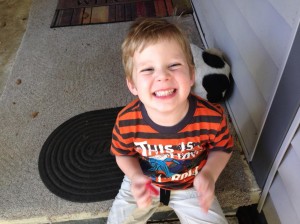 Today, Callum spoke his name for the first time. And I missed it. It sounded more like “Cam”, so I didn’t pick it out of his typical babble chatter until he said it a few more times–while waving at his own reflection in the mirror. (Yeah, I know. Sometimes, I am not so smart.) I remember turning and asked him if he’d said “Callum”. So he looked back to the mirror, waved at himself again, and said, “Callum” — with the sweetest smile. I’m sure I stopped breathing for just a moment. Overjoyed though I was that he finally said his own name, what hit me was his determination to be seen and heard. He kept on – until I got it — and then confirmed it. Apparently, he was motivated to speak his name by the reflection of himself in the mirror. A reflection he liked.
Today, Callum spoke his name for the first time. And I missed it. It sounded more like “Cam”, so I didn’t pick it out of his typical babble chatter until he said it a few more times–while waving at his own reflection in the mirror. (Yeah, I know. Sometimes, I am not so smart.) I remember turning and asked him if he’d said “Callum”. So he looked back to the mirror, waved at himself again, and said, “Callum” — with the sweetest smile. I’m sure I stopped breathing for just a moment. Overjoyed though I was that he finally said his own name, what hit me was his determination to be seen and heard. He kept on – until I got it — and then confirmed it. Apparently, he was motivated to speak his name by the reflection of himself in the mirror. A reflection he liked.
So, now I must learn how to adjust the mirror in my eyes to reflect who he really is and who he can be. Because he is watching. He is listening. He is learning.
And when he looks at himself through me, I want him to like and be inspired by what he sees. For, if what he sees in my eyes is not faith in him, how will learn faith in himself?
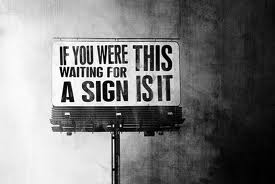
 If you want to have a relationship with him, you’re going to have to do better. He doesn’t know how to meet you where you are. You’re going to have to meet him where he is. Find out what he likes. Accept his autistic behaviors. Stop focusing so much on what you want him to be and accept him for who he is. Take joy in him now. Because the day you are hoping and praying for may very well arrive. He is still growing and developing. Still making connections and learning how to be himself in a very strange world. And the time may come when he reveals how very much he noticed all along — and asks you where you were.
If you want to have a relationship with him, you’re going to have to do better. He doesn’t know how to meet you where you are. You’re going to have to meet him where he is. Find out what he likes. Accept his autistic behaviors. Stop focusing so much on what you want him to be and accept him for who he is. Take joy in him now. Because the day you are hoping and praying for may very well arrive. He is still growing and developing. Still making connections and learning how to be himself in a very strange world. And the time may come when he reveals how very much he noticed all along — and asks you where you were.
 Mr. Morrissey, I am not a “royal watcher”, nor do I have any prior opinion of you whatsoever. What I am is one of the 1% of women affected by Hyperemesis Gravidarum – a condition you clearly know nothing about. Yet, despite your obvious ignorance of the subject and your lack of access to the Duchess’ medical records, you have decided to place blame on her for the suicide of a woman she doesn’t know? Really?
Mr. Morrissey, I am not a “royal watcher”, nor do I have any prior opinion of you whatsoever. What I am is one of the 1% of women affected by Hyperemesis Gravidarum – a condition you clearly know nothing about. Yet, despite your obvious ignorance of the subject and your lack of access to the Duchess’ medical records, you have decided to place blame on her for the suicide of a woman she doesn’t know? Really? 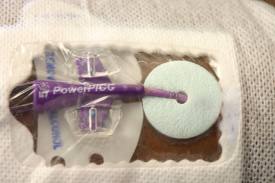
 When you have a young child with special needs, it is only a matter of time before you are asked a very personal question. Are you planning to have another child?
When you have a young child with special needs, it is only a matter of time before you are asked a very personal question. Are you planning to have another child? 
 So, friends and family, acquaintances and strangers, I respectfully ask that you back off. You might not know what you’re talking about. You mean well, we know. But we already have our hands full trying to maximize the potential for happiness – in whatever form it comes – in our children. We don’t need amateur neurologists theorizing what we could be doing differently. It’s insulting. It’s frustrating. It hurts. If you want to help, how about calling and saying, “I know you’ve got your hands full. Do you have a project around the house you think I could help with for an hour or two? Do you need an hour or two to yourself? Do you need me to run an errand? Or take Susie to dance class, etc.?”
So, friends and family, acquaintances and strangers, I respectfully ask that you back off. You might not know what you’re talking about. You mean well, we know. But we already have our hands full trying to maximize the potential for happiness – in whatever form it comes – in our children. We don’t need amateur neurologists theorizing what we could be doing differently. It’s insulting. It’s frustrating. It hurts. If you want to help, how about calling and saying, “I know you’ve got your hands full. Do you have a project around the house you think I could help with for an hour or two? Do you need an hour or two to yourself? Do you need me to run an errand? Or take Susie to dance class, etc.?”  Several years ago, when teaching research to students, I insisted upon them using index cards. It’s an old-fashioned method now, but one that stands the test of time. It forces a child to place just one fact or idea at a time on a card, and then to cite the source. Later, they assemble all of their cards in a logical order, and use them as a guide to write their first draft. It teaches them how to paraphrase and think/write original paragraphs. Otherwise, it is entirely too easy for them to plagiarize.
Several years ago, when teaching research to students, I insisted upon them using index cards. It’s an old-fashioned method now, but one that stands the test of time. It forces a child to place just one fact or idea at a time on a card, and then to cite the source. Later, they assemble all of their cards in a logical order, and use them as a guide to write their first draft. It teaches them how to paraphrase and think/write original paragraphs. Otherwise, it is entirely too easy for them to plagiarize.  If she is reading this right now, I have something to say. You really lucked out in the victim department when you chose me. Other folks might have taken a different course. So, don’t do it again. I bet you have your own words somewhere inside your heart and mind. Every person does. Start your own blog –not to get praise and recognition, but so that you have a place to sort out your emotions and interact with others in your shoes. And then leave those thoughts and emotions there, so that you can carry out your day. By doing so, you’ll also sleep more easily at night.
If she is reading this right now, I have something to say. You really lucked out in the victim department when you chose me. Other folks might have taken a different course. So, don’t do it again. I bet you have your own words somewhere inside your heart and mind. Every person does. Start your own blog –not to get praise and recognition, but so that you have a place to sort out your emotions and interact with others in your shoes. And then leave those thoughts and emotions there, so that you can carry out your day. By doing so, you’ll also sleep more easily at night. 
 Note: This blog post is not intended to question the veracity of any specific stories of injustice toward specific autistic individuals. Nor am I disparaging any bloggers for the causes they choose to champion. This is simply an issue in general that I have been concerned about for some time.
Note: This blog post is not intended to question the veracity of any specific stories of injustice toward specific autistic individuals. Nor am I disparaging any bloggers for the causes they choose to champion. This is simply an issue in general that I have been concerned about for some time.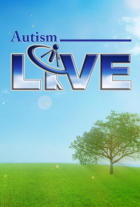

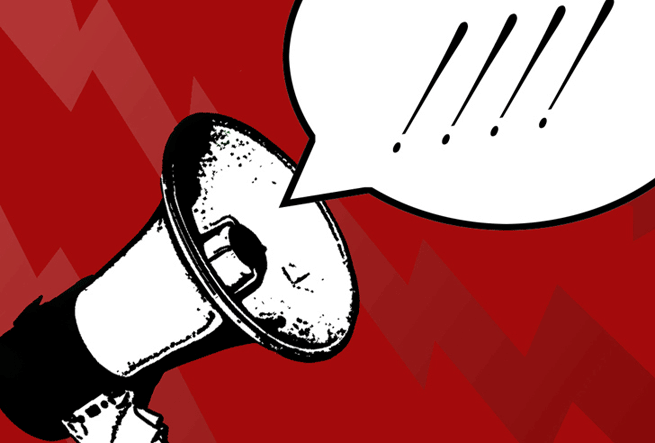 Mr. Scarborough, if you unintentionally misspoke, please correct it. Clarify your position, and take some time to do some damage control — not on your own behalf, but on behalf of your son and the autistic community you have mischaracterized. And, if you spoke intentionally, then I challenge you to do some research on links between violence and autism and report back. I think you might find yourself surprised.
Mr. Scarborough, if you unintentionally misspoke, please correct it. Clarify your position, and take some time to do some damage control — not on your own behalf, but on behalf of your son and the autistic community you have mischaracterized. And, if you spoke intentionally, then I challenge you to do some research on links between violence and autism and report back. I think you might find yourself surprised.



